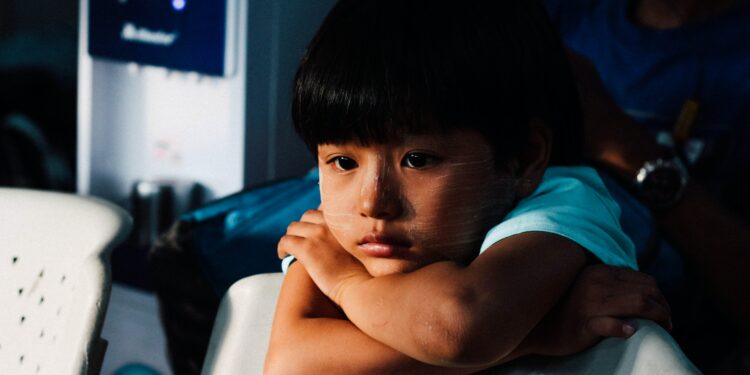Mental Health of Children During COVID: Unheard and Overlooked

The pandemic has highlighted some of the world’s economic disparities, but people overlook the fact that both black and Hispanic children have been suffering with mental illnesses. While the economic stability of New York is important, what’s more important is improving the livelihood of these children because the pandemic has caused a lot of financial and emotional distress, little to no understanding on how to manage their emotions and their emotional awareness and a negative push to substance abuse, and even suicide. While the pandemic has posed a great risk to adults who are parents and care givers or frontline workers, the children of these adults are also subjected to stress and emotional plummeting. As reported by United Hospital Fund, over 4000 children have lost a parent due to COVID-19 while 325,000 children have been pushed into the depths of impoverishment due to the decline in the economy. Hardships of this stature cause an immense amount of emotional distress and improving ways to alleviate them is crucial in times such as this.
Lacking Social Emotional Intelligence
The lack of social emotional learning before and after the pandemic is another leading cause in high suicide rates among these minority groups. According to “Deaths of Despair Have Surged Among People of Color: New data shows another disaster unfolding alongside the pandemic.” by Rob Arthur, “The aggregate suicide rate in these counties increased among people of color from 2019 to 2020: up around 17 percent among Black people (to 6.3 deaths per 100,000 people), 14 percent among Latinos (3.5), and 9 percent among individuals of Asian descent (6.7). (Although even with these increases, no racial group had a suicide rate even half as high as that among white Americans, which was 14 deaths per 100,000.)” This proves that stress and mental illness of black and Hispanic children are on the rise and will continue to if there aren’t any positive reinforcements and help. New York State has undermined the importance of Social Emotional Learning (SEL), as there isn’t much understanding surrounding the steps in which adolescents build character and personality and sort/handle their feelings. SEL is especially important because when negatively impacted during the developmental stage in their lives, the damage carries on into their adult lives and they wind up being plagued with depression or even substance abuse. The segway to this type of destructive behavior stems from children not being able to understand and sort their emotions and thoughts. Because of this inability to find healthy outlets and mediums to express themselves, they turn to substance abuse as a coping mechanism.
Young Lives Cut Short
There has been a rise in suicide attempts during the COVID-19 pandemic. According to the Economic Policy Institute, “Since the pandemic began in March, mental health-related emergency room visits have soared (health professionals document a 24% increase among elementary school-aged children, and a 31% rise among those between middle and high schoolers, compared with the same period last year)”. The reasoning behind the surge in these ER visits is the stress, anxiety and depression brought on by the pandemic. When a child decides to self-harm, they risk giving themselves health complications, potentially cut their lives short, and in extreme cases, die and devastate their families.
Rebuilding New York
Some may argue that during this time, fixing the economy is more important than providing children with the adequate help they need. During the pandemic, jobs and employment declined by 1.9 million in March and April, which resulted in 944,100 jobs lost. However, since then, New York City has been able to regain control of this unprecedented time; the city regained 161,000 (17%) jobs in June. Although it will take time to rebuild the state to where it was before the pandemic, the mental health of black and Hispanic children is continuously being undermined. The futures of children are essential in keeping the world going. They will be tomorrow’s presidents, governors, armies, etc. There won’t be a future if the children who will lead us into newer times take their lives.
Combating Mental Health Issues
Establishing a more conventional means of combating mental illness during this challenging time is the first step in a big change. By breaking down the taboos of mental health amongst minorities and promoting mental health/social emotional learning, these children will have somewhere to turn to. Using some of the school funding can help create a permanent food security system for students and provide meals for children during these trying times as well. Providing free meals would be a great amount of help to households that are currently struggling to earn money to pay for food. The next step would be setting up a time to do mental health check ins 7 days a week, either after, or in between, school hours. During that designated time, children should have either their guidance counselors or access to board certified therapists.
New Levels, New Structures
Seeing how the pandemic completely reshaped our daily interactions, it has removed children from their everyday experiences that give them structure in handling problems on their own from their peers, instructors and even family. In a study called “Theory of Motivated Cue-Integration and COVID-19: Between Interception, Somatization, and Radicalization” written by Idit Shalev, she states, “The global dissemination of COVID-19 creates confusion and ambiguity in nearly every aspect of life, including fear of contagion, heightened awareness of the mortality of self and family members, lack of power, and distrust of experts and decision-makers. According to MCI, deficiency in self-regulation during COVID-19 could result either from over-sensitivity or under-sensitivity to low-level interoceptive and exteroceptive cues; rigidity or ambiguity of high-level goals, poor integration between the two levels of processing as well as distrust in epistemic authority.” From not being able to hang out with friends, enjoy public outings or have a stable source of income, the mental impact due to isolation brought about due to COVID puts children in stressful situations. New York is fighting two battles; the economy and the mental health of children who live in low-income homes. Solving one issue can turn into a method of solving the other. This would mean selecting officials that have the credentials in child psychology, who can generate even more jobs and help even more children.



